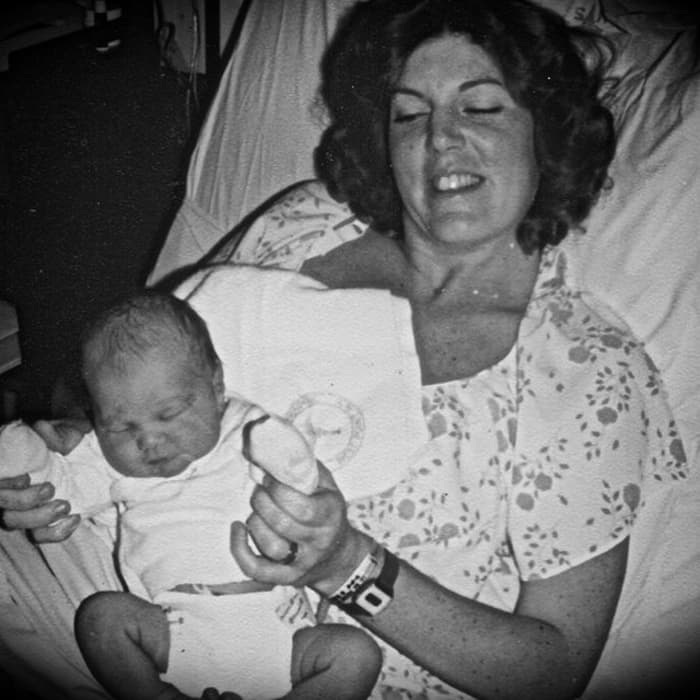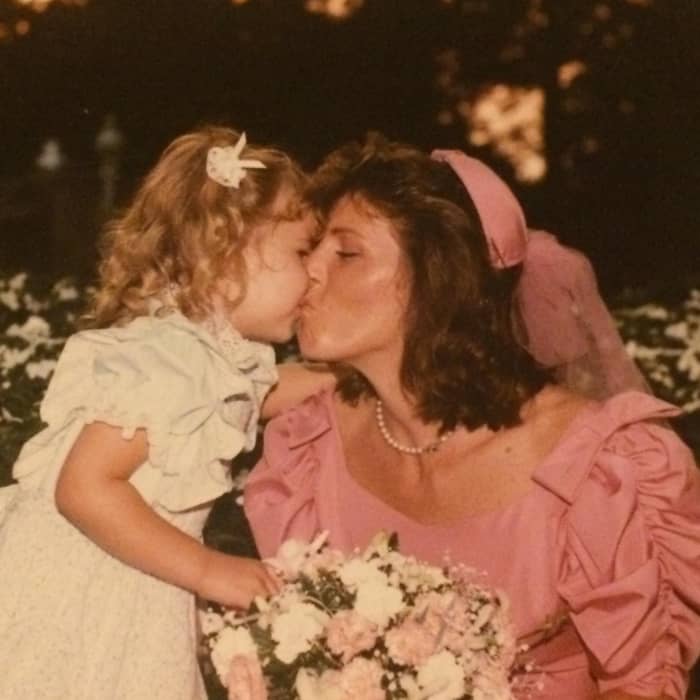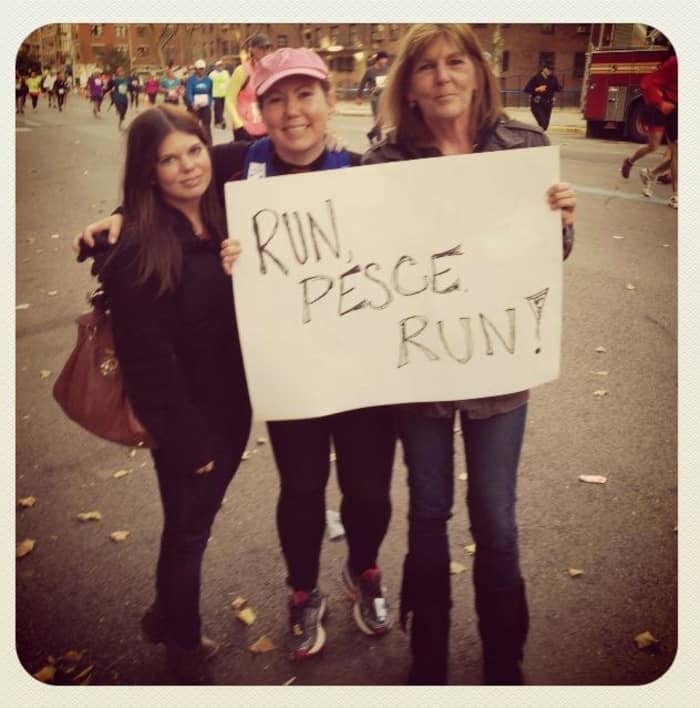I didn’t expect to be emotionally ambushed when I checked my email, but the subject lines sucker punched me without warning.
“Moms Are A Gift … So Give Them The Best.”
“Give Mom A Gift Card!”
And my favorite: “Don’t Forget Mom!”
Please. I’ve been mourning her for six years now, and not a day goes by where something doesn’t remind me of the underground-music-loving, cocktail-mixing, hardworking ER nurse and mother of four named Lydia who fought lung cancer with every ounce of her strength.

The author and her mother, Lydia.
Nicole Lyn Pesce
I have been trying to forget Mother’s Day, however, now that I don’t have this special lady to treat to brunch, send flowers to or FaceTime with anymore. But it’s hard to escape. Mother’s Day is one of the biggest retail holidays in the U.S., and Americans are expected to spend a record $ 31.7 billion on their moms this year, according to the National Retail Federation. In fact, Hallmark estimates people send 113 million Mother’s Day cards each year. So the mother of all well-meaning, well-oiled marketing machines is bombarding our inboxes, social-media feeds, websites and TV shows this time of year — which is really, really hard on the kids grieving our moms.
“The first year after I lost my mom, I remember rolling my eyes at all the ads, deleting all the emails before I really read them, or changing the channel, and being like, ‘Will it ever end!’ ” said Jessica Buckley, 41, from Long Island, whose mother also died from cancer several years.
“It’s a tough time,” agreed Simona Rosekelly, 37, in Washington, D.C., who lost her mother several years ago, as well. “The sales ads, commercials, you try turn a blind eye to … but then everyone updates their Facebook FB, -2.17% profile pics to show their moms, or posts pics of mom. I just go to ground on the day of, avoid social media. All I can do is distract myself.”

The author and her mother, Lydia.
Nicole Lyn Pesce
More and more families are facing a difficult Mother’s Day this year, as almost 1 million Americans have now succumbed to COVID-19. The World Health Organization has warned that the global death toll is around 15 million people.
And COVID-19 can exacerbate the pain in other ways. Kristin Bianchi, a licensed psychologist at the Center for Anxiety and Behavioral Change, told MarketWatch that the pandemic has made the grieving process feel “even lonelier.” Some people are still staying home and isolating because they are immunocompromised, or they live in areas where COVID cases and hospitalizations continue to climb. “We don’t have access to the type of physical contact and support upon which we rely to get through times of loss,” she said.
So she encourages those in mourning during the pandemic to “let people in” as much as possible, even if that means calling someone or Zooming with someone to just sit and cry.
Read more: Grieving in the midst of the coronavirus — what to know and how to help others
Mother’s Day isn’t the only emotional minefield among holidays if you’ve lost a parent; there’s also Father’s Day, coming up next month, as well as Thanksgiving, Christmas and Hanukkah to consider. And if you’re a mom who’s lost a child, or a woman who can’t conceive, this weekend can also trigger a tsunami of sadness.
Since completely avoiding these holidays is impossible, grief counselors suggest meeting them head-on in a way that feels comfortable to you and to your family.
“The discomfort and the sadness is going to stay, because you miss her. But you can counteract that physical loss by giving her presence, even if you can’t give her presents,” Allison Gilbert, grief expert and author of “Passed and Present: Keeping Memories of Loved Ones Alive,” told MarketWatch.
“Incorporate her into the day, because she’s still your mom, and your relationship is still important to you,” she explained. “Take a beat to look at photographs. Email or call someone to talk about her. Put up a Facebook post remembering her. Or even just say her name out loud. It’s more validating and restorative than you realize.”

The author is flanked by her sister, Chelsea, and her mother, Lydia.
Nicole Lyn Pesce
Sue Carter, a counselor and therapist with Kara Grief Support for Children and Adults, suggests doing something your mom liked to do, such as eating her favorite food, or spending some time thinking about her.
So over the past few years, my family has sometimes returned to the beach where we made so many happy memories sipping Yoo-hoo, eating bagels and swimming out as far as we could before my mom would yell at us to stop tempting the riptides. Or we toast her with Baileys Irish Cream, one of her favorite adult beverages, and play her favorite songs by Wilco and the Shins, and swap stories about her.
Buckley also likes to go to the beach with her husband and kids on Mother’s Day.
Rosekelly once got a tattoo of forget-me-not flowers to honor her mom. And sometimes, she’ll make a cup of tea, sit with a framed picture of her mother, and “catch her up” — the way they used to get together when Rosekelly would come home to visit. (I’ve tried this a few times, myself, such as on Mom’s birthday, or the day after I got engaged; sipping coffee in front of her urn and filling her in on everything going on. And it’s hurt, but it’s also felt cathartic. Sometimes I even surprise myself by laughing while I catch her up on something I know she would’ve gotten a kick out of.)
Both of them also strongly recommend chatting with other people living through this — whether that’s over Google GOOG, -0.93% Hangouts, Zoom ZM, -4.42% or another videoconferencing app, or just a good old-fashioned phone call, or meeting in person for a hug.
“You are not alone,” Rosekelly said. “There is a large but silent sisterhood — and brotherhood — out there.”
This article was originally published in 2017, and has been updated and republished to include new data and the COVID-19 pandemic.
